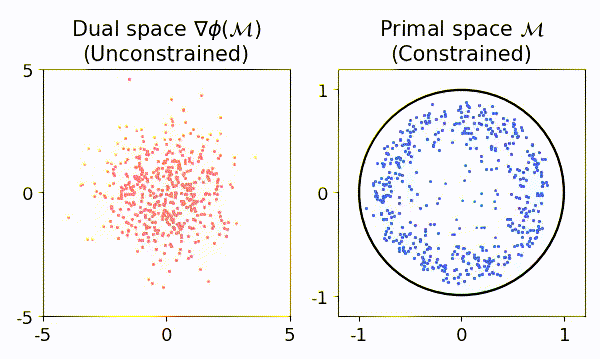Mirror Diffusion Models for Constrained and Watermarked Generation
Modern successes of diffusion models in learning complex, high-dimensional data distributions are attributed, in part, to their capability to construct diffusion processes with analytic transition kernels and score functions. The tractability results in a simulation-free framework with stable regression losses, from which reversed, generative processes can be learned at scale. However, when data is confined to a constrained set as opposed to a standard Euclidean space, these desirable characteristics appear to be lost based on prior attempts. In this work, we propose Mirror Diffusion Models (MDM), a new class of diffusion models that generate data on convex constrained sets without losing any tractability. This is achieved by learning diffusion processes in a dual space constructed from a mirror map, which, crucially, is a standard Euclidean space. We derive efficient computation of mirror maps for popular constrained sets, such as simplices and $\ell_2$-balls, showing significantly improved performance of MDM over existing methods. For safety and privacy purposes, we also explore constrained sets as a new mechanism to embed invisible but quantitative information (i.e., watermarks) in generated data, for which MDM serves as a compelling approach. Our work brings new algorithmic opportunities for learning tractable diffusion on complex domains. Our code is available at https://github.com/ghliu/mdm
PDF Abstract NeurIPS 2023 PDF NeurIPS 2023 Abstract

 FFHQ
FFHQ
 AFHQ
AFHQ